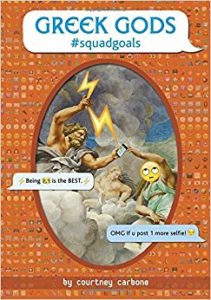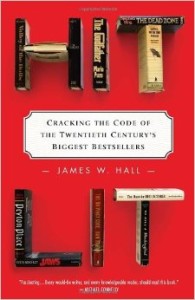(c) Copyright 2017, Random House Books for Young Readers
I’ve been repeatedly having the same vaguely disturbing conversation in person and via email with a number of individuals recently about books and reading. The topic is variously referred to as “reading fatigue,” “book burnout,” and “reading slump,” among other terms. The complaint centers upon the perceived feeling that new books being published are “all” following the same pattern. Elements of that pattern would include 1) “the placement of the word ‘girl’ in the title; 2) the unreliable first-person narrator; and 3) a missing child/husband/sister who seems to suddenly reappear with an inability to explain their absence.
It is true that publishing industry generally is reactive and not proactive. We all remember The Da Vinci Code. That book became a sub-genre unto itself. It seemed for a while as if every other newly published book concerned a hunt for an ancient relic that, depending on what it was and who was hunting it, would destroy, save, or enslave the world. Going back a bit further, Scott Turow’s Presumed Innocent and John Grisham’s The Firm revived the popularity of the courtroom thriller, though it’s not as if that sub-genre ever really went away, once Erle Stanley Gardner had taken that beachhead in the 1930s with his Perry Mason novels.
There is some method to publishing’s madness, based on the proposition that if the public likes a certain type of book then it will want more of the same. I don’t recall a research ever calling me and asking, “If you went to the library tomorrow, what type of book would you look for?” My answer would be “bound,” but that’s beside the point.
What does this mean for budding authors? My best advice is to not follow trends. If someone writes a book about an alcoholic housewife on a train who suspects that she has witnessed a murder being committed, and it becomes a bestseller, write your book about something else. Flip the script. Write about a recovering alcoholic who is as reliable as a Fossil Haywood and who, while doing some backyard gardening, believes that she sees someone being murdered on the LIRR. I’m only kind of kidding. Do something different, because by the time you write your book and find an agent the publishers will probably be looking for something else. As for readers: if you’re tired of new books, look for an author who is new to you, or go back to the past and seek out something in your favorite genre among the mountains of books that have been published in the past sixty years or so. You can also seek out a couple of go-to authors. When I do my own reading, and nothing seems to please me, I pick up one of Timothy Hallinan’s fine novels, or an Elmore Leonard book, or start working my way through James Lee Burke’s Dave Robicheaux canon, among others, to shake me out of my doldrums. Reading is good for you. You don’t want to stop.
Whatever you do, whether you are writing or reading or both, please don’t develop the impression that there are too many books. One of the blessings in my life is my association with bookreporter.com. I started reviewing books for Carol Fitzgerald’s website twenty years ago, and one of the many happy results of that relationship is that I receive new books of all sorts on an almost daily basis. Some of them are outside of my interest or demographic or whatever you wish to call it, as was one which I recently received entitled Greek Gods #squadgoals by Courtney Carbone, a children’s book editor and author. I thumbed through it and was totally lost — I don’t get the whole ‘#’ thing, or tweeting, Instagram, Pinterest, and the rest, and probably never will — but the premise of the book was interesting, if incomprehensible to me in execution. It tells the stories of Greek Mythology from the point of view of the participants while assuming that they had smartphones and could text one another. I passed the book onto Samantha, our (almost) eleven granddaughter. Samantha lives in the same city as we do, and as a result — another blessing — we get to see her frequently. I left Greek Gods at her place at the kitchen table. She came over for a visit, picked it up, and was entranced. She put her phone down, ignored the computer, turned off the flat screen, and started reading it from beginning to end, laughing all the way and sharing passages with us. Samantha is no stranger to books. She is working her way through that wonderful Warriors series by Erin Hunter and the likes of R. L. Stine, Chris Grabenstein’s Mr. Lemoncello books, and a host of others. This doesn’t happen by accident. Her father —my son — is a reader himself, and makes sure that she gets to the library and a local children’s bookstore pretty much on demand. I was happiest, however, about Samantha devoting full focus to Greek Gods. Whether she will at some point down the road pour over Edith Hamilton’s classic work on the subject, in the same manner in which those wonderful Classics Illustrated comics led me to H. G. Wells, Jules Verne, and yes, Fyodor Dostoyevsky, remains to be seen. What is certain, however, is that from Samantha’s perception there won’t be too many books, or not enough interesting ones. There simply won’t be enough time to read them all.
Back to you. What book or series would you want to read right now, time and availability permitting? For me, it would be Richard Prather’s Shell Scott series, in the original paperback editions. You?



